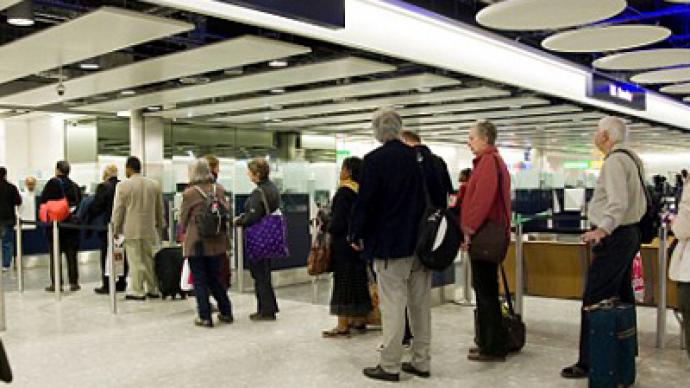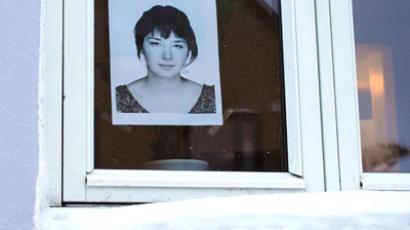Fortress Britain? UK welcomes suspected war criminals

Some 200 suspected war criminals are roaming the streets of Britain, and of those, just three have been removed from the country over the past 18 months.
With crimes ranging from mass murder to torture and rape, these suspects cannot be sent back to their home countries because of EU human rights laws.The fugitives – many of them asylum seekers – are mainly form Rwanda, Sierra Leone, Afghanistan, Iraq, Sri Lanka and Zimbabwe. More than 30 have been given the right to stay.Human Rights groups say the Home Office figures, which were released under Freedom of Information rules, prove Britain is a "safe haven" for war criminals.“A major concern is what is happening to those suspects. Does the UKBA [UK Border Agency] refer them all to the Metropolitan Police for investigation with a view to seeing if they can be prosecuted here? Unless and until there are a significant number of prosecutions for these types of crimes, suspects will continue treating the UK as a safe haven.”Michael McCann MP, chairman of the All-Party Group for the Prevention of Genocide and Crimes Against Humanity, has criticized the UKBA for not acting quickly enough when suspicions came to light. He also expressed frustration at the difficulty in obtaining answers from the agency about the full scale of the problem.“We need a frank exchange between the UKBA and police, and we need Ministers to provide straight answers to straight questions."Last year it emerged that a former henchman of Robert Mugabe had been given refuge in the UK. Phillip Machemedze tortured political opponents of the Mugabe regime, allegedly breaking his victim's jaws with pliers. He first came to Britain with his wife in 2000 after switching sides to back Mugabe's rivals. His initial asylum plea was rejected, but Machemedze later won an appeal and the right to remain in May last year, after claiming he faced ill-treatment and possible death if he returned to Zimbabwe.Another suspected war criminal is Emmanuel Nteziryayo who is thought to have helped kill 87,000 people during the 1994 Rwandan genocide.He was found living on state handouts in Manchester under the nickname “Papa Alice.”Last month the High Court blocked bids to have Nteziryayo, 54, and three fellow Hutus sent back to the African state to face prosecution.Another case is former Serbian soldier Milan Sarcevic, who is accused of taking part in the 1991 Vukovar massacre where 300 wounded Croats were beaten, executed and buried in a mass grave. Sarcevic has also been allowed to stay in Britain. The 60-year-old – who denies any wrongdoing – came to Britain more than a decade ago and, when he was refused asylum, returned to Croatia in September 2002. But just eight months later he was allowed back in to Britain to put in another asylum claim. This time the courts ruled that evidence of his involvement in the atrocity was "not conclusive," and said Sarcevic must be allowed to stay because of his family rights under Article 8 of the Human Rights Act.In all, the UKBA has recommended action against 207 suspects in the past 18 months and campaigners are calling on Scotland Yard to set up a war crimes unit after the figures were released.They show that more than 800 people were investigated between June 2010 and the end of last year over potential involvement in war crimes.So far just three have been removed from the country.Another 32 have been told they can stay here – including 15 on human rights grounds – and two have been given British citizenship.A Border Agency spokesman said, "The Government makes no apologies for refusing people access to the UK if their presence is not conducive to the public good." "We are determined to ensure the UK does not become a refuge for war criminals. If it is not possible to remove them immediately – for example, if we have been over-ruled by the courts – these individuals can now be subjected to stringent reporting and employment restrictions while we continue to seek their removal."












